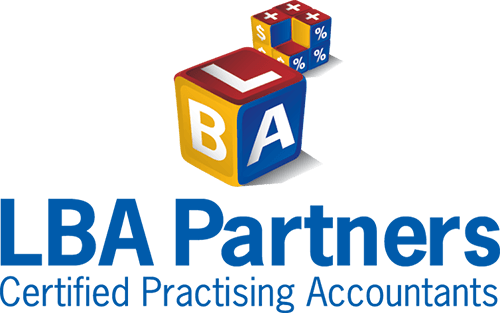Here's our latest newsletter, if you would like to follow up any of the information please contact Linda or Grahame
P r a c t i c e U p d a t e
December 2014
Year-end and other staff parties
Editor: With the December/January break on the way, many employers and businesses will be planning to reward staff with a celebratory party or event. However, important issues for our clients to consider are the possible FBT and income tax implications of providing 'entertainment' (including Christmas parties) to staff and clients.
FBT and Entertainment
Under the FBT Act, employers must choose how they calculate their FBT entertainment liability and most use either the 'actual method' or the '50/50 method'.
Under the actual method, entertainment costs are normally split up between employees (and their family) and non-employees (e.g., clients and suppliers).
Expenditure on employees is deductible and liable to FBT. Expenditure on non-employees is not liable to FBT, and not tax deductible.
Using the 50/50 method instead?
Rather than apportion entertainment expenditure on the basis of actual attendance by staff, etc., many employers choose to use the more simple 50/50 method.
Under this method (irrespective of where the party is held or who attends) – 50% of the total expenditure is subject to FBT and 50% is tax deductible.
However, the following traps must be considered:
· even if the function is held on the employer's premises – food and drink provided to employees is not exempt from FBT;
· the minor benefit exemption* cannot apply; and
· the general taxi travel exemption (for travel to or from the employer's premises) cannot apply.
(*) Minor benefit exemption
The minor benefit exemption provides an exemption from FBT for most benefits of 'less than $300' which are provided to employees (and their family/associates) and which are infrequent and irregular.
The ATO accepts that different benefits provided at, or about, the same time (such as a Christmas party and gift) are not added together when applying this threshold.
However, entertainment expenditure that is FBT exempt is also not deductible.
Editor: And that's 'less than' $300, i.e., no more than $299.99. A $300 gift to an employee will be caught for FBT, whereas a $299 gift can be exempt.
Example: Christmas party
An employer holds a Christmas party for its employees and their spouses – 40 attendees in all.
The cost of food and drink per person is $250, and no other benefits are provided.
If the actual method is used:
· For all 40 employees and their spouses – no FBT is payable (i.e., applying the minor benefit exemption), however, the expenditure is not tax deductible.
If the 50/50 method is used:
· Expenditure is $10,000 and 50% (i.e., $5,000) is liable to FBT and tax deductible.
Christmas gifts
Editor: With the holiday season approaching, many employers and businesses want to reward their staff and loyal clients/customers/suppliers.
Again, we thought we would now discuss how gifts to staff and clients, etc., are handled "taxwise".
Gifts which are not considered to be entertainment
These generally include, for example, a Christmas hamper, a bottle of whisky or wine, gift vouchers, a bottle of perfume, flowers, a pen set, etc.
Briefly, the general FBT and income tax consequences for these gifts are as follows:
· gifts to employees and family members – are liable to FBT (except where the 'less than $300' minor benefit exemption applies) and tax deductible; and
· gifts to clients, suppliers, etc. – no FBT, and tax deductible.
Gifts which are considered to be entertainment
These generally include, for example, tickets to attend a theatre, live play, sporting event, movie or the like, a holiday airline ticket, or an admission ticket to an amusement centre.
Briefly, the general FBT and income tax consequences for these gifts are as follows:
· gifts to employees and family members – are liable to FBT (except where the 'less than $300' minor benefit exemption applies) and tax deductible; and
· gifts to clients, suppliers, etc. – no FBT and not tax deductible.
Non-entertainment gifts at functions
Editor: What if a Christmas party is held at a restaurant at a cost of less than $300 for each person attending, and employees with spouses are given a gift or a gift voucher (for their spouse) to the value of $150?
Under the actual method, for employees attending with their spouses – no FBT is payable because the cost of each separate benefit (including the gift) is less than $300 (i.e., the benefits are not aggregated).
No deduction is allowed for the food and drink, but the gift is tax deductible.
Where the 50/50 method is adopted:
· 50% of the total cost of food and drink is liable to FBT and tax deductible; and
· the total cost of all gifts is not liable to FBT because the individual cost of each gift is less than $300.
As the gifts are not entertainment, the cost is tax deductible.
Editor: We understand that this can all be somewhat bewildering, so if you would like a little help, just contact our office.
Director liable for company's PAYG withholding
A recent case before the Administrative Appeals Tribunal (AAT) involved a company that had withheld nearly $850,000 in pay as you go (PAYG) withholding that it had deducted from its employees' salaries and wages.
It was obviously in some financial trouble, and failed to remit any of the monies to the ATO before being wound up.
Editor: Company directors have a legal responsibility to ensure that their company meets its PAYG withholding and superannuation guarantee charge (SGC) obligations.
This doesn't only apply to companies that are wound up, as a director of any company that fails to meet a PAYG withholding or SGC liability by the due date can become personally liable for a penalty equal to the unpaid amount.
The ATO issued director penalty notices (DPNs) to the director (the DPN is the first step in the process for the ATO to start legal proceedings to recover the unpaid PAYG).
The director tried to fight the case, but the DPNs were valid in the opinion of the AAT.
Project DO IT – ATO says act now!
With only weeks until the ATO's offshore voluntary disclosure initiative – 'Project DO IT' – closes on 19 December 2014, the ATO is reminding those with undisclosed offshore income and assets that they should act now or risk audit action and significant penalties.
Editor: Note that the ATO has stated they are far more concerned with the taxpayers who don't disclose, rather than those who do, and the aim of Project DO IT is to provide one last chance for taxpayers to disclose before the net closes completely on offshore tax evasion.
Please Note: Many of the comments in this publication are general in nature and anyone intending to apply the information to practical circumstances should seek professional advice to independently verify their interpretation and the information's applicability to their particular circumstances.
Management Consulting
We have the know-how and experience to offer advice that helps you run your business more effectively.
Self-Managed Superannuation Funds
At LBA Partners we provide the professional advice you need to manage your own fund and greatly simplify the process for you.



